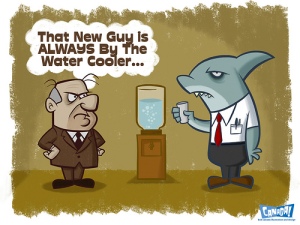Imagine a new disaster film coming to a theater near you! Perhaps that hurricane swooping up jobs isn’t far away. It may be a surprise you never saw coming… or did you?
Extreme storm warnings in the “Jobnado” area include:
- Mergers
- Acquisitions
- Restructuring
- Closings
- Poor Performance
When companies merge there is always the chance that redundant jobs disappear. That is not always the case but it could be a reason to be on storm alert. Sometimes the job is not swooped away but the location of the position changes to another state or city. The same can be said about an acquisition but this will sometimes depend on whether or not you are an employee of the company acquired, or are you an employee of the acquirer. Typically the acquirer will retain it’s employees but again that is not always the case. There may be relocation of employees as well.
When a company restructures for financial purposes, depending on the change in the business goals, jobs may be affected. Sometimes entire departments will no longer be needed for the new company focus or directions. This can result in lay-offs. Sometimes because of unmet goals, competition or severe financial losses, companies close. The only threat you have a chance in redirecting is your own performance in a job. If you have been warned by your supervisor informally or in a formal manner, you have the choice to ask for help and try to turn around. Heed warnings seriously if you care about the job and staying employed.
How can you prepare for the “Jobnado” disaster?
- Make sure your resume is current
- If you are able, consider a relocation
- Think about how your skills might fit into the newly (merged/acquired) company and let the employer know.
- Take your job seriously.
- Take a course or attend seminars that will keep you current in your job or one that you would like.
- Let your employer know you are contributing to it’s success by what you accomplish (large or small).
- Take advantage of out placement services.
- Keep networking.
- Buy extra water and clean your basement, just because those are good things to do!!
You never know, maybe the next Jobnado will help you turn a disaster into an opportunity!
Talk soon.

